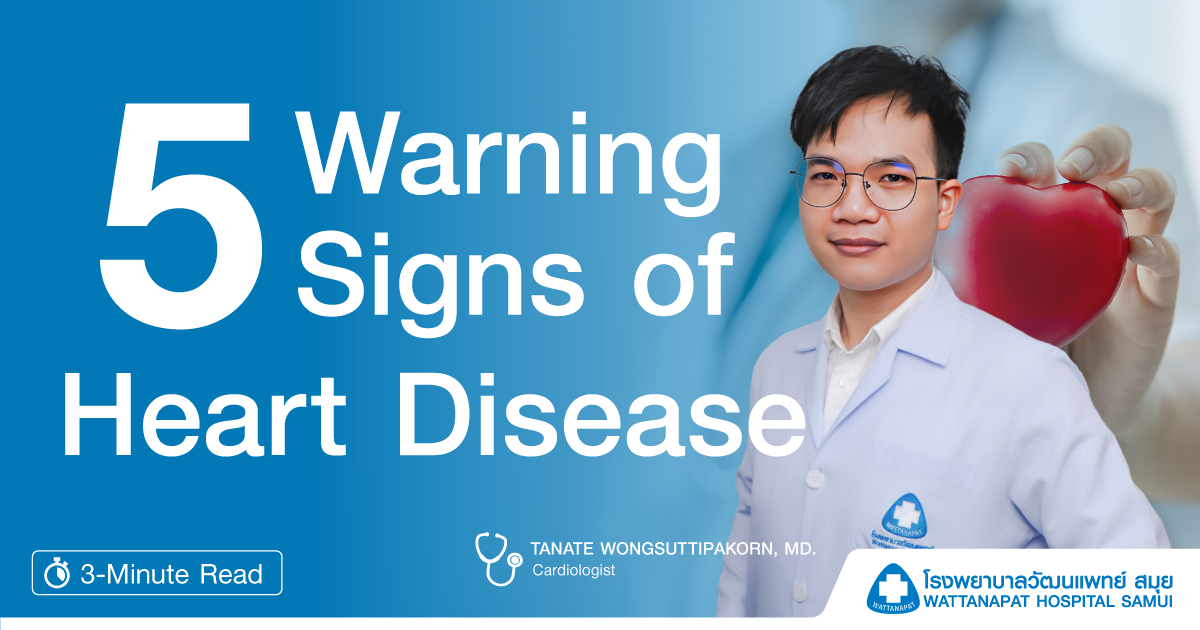5 Symptoms and Warning Signs of Heart Disease
5 Symptoms and Warning Signs of Heart Disease
Cardiovascular disease ranks among the primary causes of mortality globally, and recognizing its manifestations could very well be life-saving. The heart, being the core organ responsible for circulating blood throughout your system, demands immediate attention when its function falters. This article sheds light on five crucial indicators of heart disease and outlines proactive steps you can take to safeguard your well-being.
What is Heart Disease?
Heart disease serves as an umbrella term encompassing a myriad of conditions that impair the heart's proper functioning. These disorders range from coronary artery disease, myocardial infarctions, arrhythmias, to congestive heart failure. Each condition poses severe health risks, and early detection of symptoms can prove pivotal in preventing long-term complications.
The Value of Early Detection
Identifying heart disease in its early stages offers the most effective route for treatment before it escalates. This condition often develops progressively, and its symptoms may initially seem insignificant or easily overlooked. Thus, understanding what to monitor and tuning into your body’s distress signals is imperative.
5 Key Indicators and Symptoms of Heart Disease
1. Chest Pain or Discomfort
Chest pain remains the most well-known symptom of cardiovascular disease, but its presentation varies from person to person. Some may endure sharp, acute pain, while others encounter a dull, suffocating pressure. These sensations can occur during physical exertion or even at rest, persisting for minutes or manifesting intermittently.
Moreover, the pain may radiate to the arms, neck, jaw, or back, signaling potential heart trouble. Do not dismiss these signs—seek immediate medical intervention if they arise.
2. Difficulty Breathing
Sudden shortness of breath, especially without exertion, can indicate that the heart is not efficiently circulating oxygenated blood. It might occur during exercise or even while reclining. This symptom arises due to the heart's struggle to propel blood throughout the body, culminating in respiratory distress.
3. Persistent Fatigue or Unusual Tiredness
While occasional tiredness is common, unrelenting exhaustion that fails to subside with rest could be tied to cardiac dysfunction. When the heart is unable to adequately supply the body with oxygenated blood, an individual may feel persistently weak or drained. If tasks that were previously manageable suddenly leave you fatigued, further investigation is warranted.
4. Swelling in Lower Extremities (Edema)
Edema, or swelling in the legs, ankles, or feet, is often a hallmark of heart failure. When the heart cannot efficiently pump blood, fluid accumulates in surrounding tissues, resulting in visible swelling. Although minor swelling can occur from extended standing or sitting, pronounced or chronic edema should not be ignored.
5. Irregular Heartbeat or Palpitations
An erratic or racing heartbeat may seem benign, but consistent irregularities could point to arrhythmias or other heart conditions. Palpitations may be triggered by stress, caffeine, or dehydration, but if they persist or accompany symptoms like dizziness, consulting a physician is critical.
Additional Symptoms Worth Noting
- Dizziness or Lightheadedness: Although dizziness has various causes, when paired with other signs such as chest pain or shortness of breath, it might reflect inadequate blood circulation or an underlying heart condition.
- Chronic Coughing or Wheezing: A persistent cough, especially when not linked to respiratory issues, may suggest heart disease. When the heart is weakened, fluid can accumulate in the lungs, resulting in coughing or wheezing.
- Nausea and Cold Sweats: Feeling nauseous or breaking out into cold sweats can serve as subtle yet serious indicators of a heart issue. Though more frequent in women experiencing heart attacks, these symptoms should not be disregarded by anyone.
Risk Factors for Cardiovascular Disease
Several factors elevate the risk of developing heart disease, including hypertension, high cholesterol, diabetes, tobacco use, obesity, and a sedentary lifestyle. Furthermore, a family history of heart disease significantly amplifies the risk.
Preventive Measures
Heart disease is often preventable through diligent lifestyle choices. Engaging in regular physical activity, consuming a balanced diet, quitting smoking, and managing stress are all integral to prevention. Additionally, monitoring blood pressure, cholesterol, and body weight can further reduce the likelihood of developing heart-related issues.
When to Seek Medical Attention
Should you notice any of the symptoms mentioned above, immediate consultation with a healthcare professional is essential. Even in the absence of symptoms, routine medical check-ups can identify potential concerns before they become serious.
 |
Conclusion
Cardiovascular disease is a formidable condition, but with timely detection and appropriate lifestyle adjustments, you can maintain control over your heart health. Always listen to the signals your body provides, stay proactive, and ensure regular medical evaluations to live a heart-healthy life.
FAQs About Heart Disease
- Can heart disease manifest without noticeable symptoms? Yes, it can progress silently, which is why routine health screenings are vital.
- Are all chest pains related to heart disease? Not necessarily, but any form of chest discomfort should prompt a medical consultation.
- What can I do to mitigate heart disease if I have a family history? Adopt a healthy lifestyle, manage stress levels, and schedule regular medical evaluations.
- What steps should I take if I notice these symptoms? Seek medical attention immediately—early intervention can be life-saving.
- How often should I get my heart checked? An annual examination is recommended, though those with risk factors may require more frequent visits.



